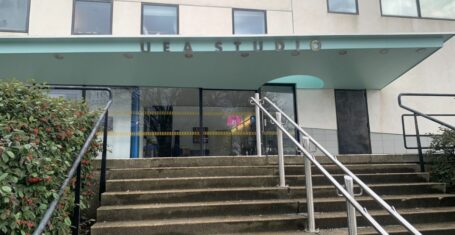
Spring Break: Why I chose the Swamp over the Beach
My Alternative Spring Break in the Everglades of Florida, USA.
When you are in the wilderness, crouching delicately in an uncomfortable balance between the fire ant’s nest troublingly close to your left foot and the poison ivy you’ve managed to identify to your right, you begin to wonder many things.
Is the sweat prickling every inch of your skin because of the 30 degree heat penetrating your long and heavy work clothes?
Or is it because of the crippling anxiety that when you stick your hand into that thick mound of grass in front of you to pull out an invasive plant, there could be an Eastern Diamondback Rattlesnake just waiting for the chance to sink its venomous fangs into your exposed, intruding hand.
Despite dousing yourself in toxic doses of DEET and wearing far too many clothes in the Florida heat, you still wonder what else you could have done to prevent the hell-on-earth itching of mosquito bites plaguing your skin, and the constant need to slap yourself when you feel the abominable insect plunging into your much needed blood supply.
Most of all you wonder; why am I not laying on a beach, drinking myself into oblivion like most normal people on their Spring Break?
As an English student in America, this certainty wasn’t how I had anticipated my Spring Break would pan out. I was unaware, that when I made the decision to volunteer on an “Alternative Spring Break” I would return a changed person, full of sickening enthusiasm and fervent passion for nature.
Is this something we are all missing from our sterile lives?
Despite the opportunity to check out our species’ most formidable creations; New York City’s skyline, Disney World’s magic, Miami Beach’s glamour, I found the overwhelming need to get away. When liberated from my smart phone inundating me with a constant stream of e-mails, social media as well as old fashioned text messages, I found myself not disconnected, but more connected than I have ever been; to nature and the phenomenal human community around me, sharing the same work and sharing the same passion.
I was in a team of around 30 other university students with the Student Conservation Association in Everglades National Park. We helped control exotic, invasive plant species that humans introduced that are now choking the native species’ chance to flourish.
I learnt about the destructive effect agriculture and development has had on the once 11,000 square miles of wetlands, now half the size. The once complex and delicate water flow system now artificially drained.
I came across thriving populations of alligators, crocodiles, a manatee, two venomous Cottonmouth snakes and even a python. One person’s decision to set his pet Burmese python that got too big free is now the reason there are almost no mammals left in the Everglades. The story of human beings is to truly act with no regard for their impact.
The more we learn about ecology and conservation biology, the more we realise our profound ignorance. This should not hinder us, but help us to respect and appreciate the staggeringly complex ecosystems on this beautiful earth.
The most important thing I learnt however, and the most important thing I need to remember, is how little anything mattered when I was in the wilderness.
Those deadlines, those judging eyes, the oppressive pressures of modern society and the glorified stress that comes with it seemed as far away in time as in distance. But when I am back in my “normal” life, I will always have a bit of the Everglades with me. Nothing can ever be as daunting as the fear of stepping on a snake hours away from a hospital. Nothing can ever be as irritating as 30 mosquito bites crawling at my nerves (yes, I counted.) And you can always find something more beautiful outside than within the four corners of a building.
Like John Muir discovered over a century ago with the Sierra Nevada mountains, I discovered when leaving the Everglades, I wasn’t going home. I was leaving it.
“Thousands of tired, nerve-shaken, over-civilized people are beginning to find out that going to the mountains is going home; that wilderness is a necessity; and that mountain parks and reservations are useful not only as fountains of timber and irrigating rivers, but as fountains of life.”
~ John Muir (1901) Our National Parks
[Photos by Steph Hawkins, Erika Barker/erikabarker.com, and Aryel Abramovitz. Copyright laws apply.]









































